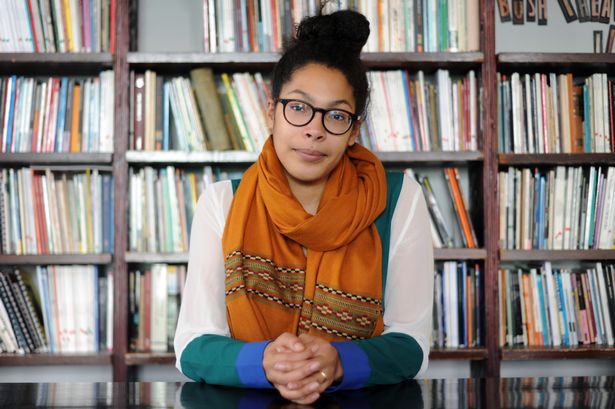Five Minutes with…Jackie Sibblies Drury
Playwright, ‘We Are Proud to Present….
What inspired you to write We are proud….?
I was doing research for a very different play, one that was going to be about a German actor named Gunther Kaufman, who was the son of an African-American soldier and a white German woman, who played a Black GI in a few of Fassbinder’s movies. I wanted to find out more about black Germans, so I googled “black people + Germany” and saw several hits about The Herero-Namaqua Genocide. I am by no means an expert on African or German history, but I was surprised to not have ever heard of what is considered the first genocide of the 20th century.
What sources did you read and/or visit to write the story of the play?
I read a lot of online articles. I also read a book called Words Cannot Be Found, which is an annotated reprint of a British pamphlet called The Blue Book — originally printed as an account of German aggression in German South West Africa, but ultimately as a piece of anti-German propaganda during the First World War. I also read a book called The Devil’s Handwriting, which is a book about German colonial history.
What parallels do you find in the story of the Hereros and African American History?
One of the photographs that I came upon in my research was of Herero men executed during the genocide. It was an image of black men hanging from trees — an image that, as a black person raised in America, instantaneously calls to mind lynchings in the American south. It is hard for me to not make that connection, and my own inability to separate those images is at the center of the play.
How do you address criticism that Genocide is too serious a topic to ever be humorous, funny, or comic?
I don’t feel the need to address that criticism. Anyone who doesn’t realize that comedy’s origins lie in horror doesn’t have a very good understanding of comedy. Or horror.
Have you been to Africa, and if not are there any particular countries you’d like to visit?
7. I’m planning to go to Northern Africa, to a contested area in the south of Morocco called Western Sahara in the beginning of March to research a new play. I’ll be there for six months to start, and while there are a lot of places in Africa that I would like to visit, it’s hard to think speculatively with a significant trip coming up so soon.

